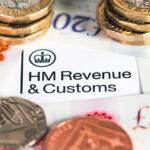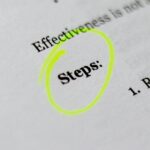Introduction to Income Tax
Introduction

The tax year for individuals runs from 6th April to the following tax year 5th April. The corporation tax financial year for limited companies runs from 1st April to the following year 31st March. Individuals who fall into within Self-Assessment are normally required to submit an annual tax return. Paper tax returns must be filed by 31st October following the end of the tax year. Most tax returns are submitted annually online and must be filed by the following 31st January. Example – tax year ending 5th April 2023 must be filed online by 31st January 2024.
Taxation law is a combination of both statute law and case law. Statements made by the tax authorities provide information on the authorities’ interpretation of the law. HMRC is the governing body for the collection and inspection of all tax returns and has legal authority and statutory powers to enforce them.
Tax Charter
The HMRC Charter sets out the service and standards of behaviour that taxpayers should expect when dealing with HMRC. In brief, a taxpayer can expect that HMRC will:
- Provide services that are accessible, easy, and quick to use, at minimum cost.
- Provide accurate, consistent, and clear information.
- Be responsive, answer questions quickly and rectify any mistakes immediately.
- Work to make sure everyone pays the right amount of tax.
- Assume that taxpayers are telling the truth unless there is evidence to the contrary.
- Take firm action against those who bend or break the law.
- Be aware of the taxpayer’s personal situation and provide support if necessary.
- Protect taxpayer information and use that information fairly and lawfully.
- Treat the taxpayer with respect.
In return, HMRC expects taxpayers to give full, accurate and timely answers when asked for information and to treat HMRC staff with respect.
The Adjudicator
An Independent and impartial adjudicator considers complaints received from taxpayers who are not satisfied with the quality of the service they have received from HMRC. The Adjudicator writes an annual report and makes recommendations for improvements to HMRC procedures and practices. The adjudicator is not empowered to hear tax appeals.
Deadline Dates/Penalties
Self-assessment tax returns that are filed online electronically must be submitted by January 31st after the 5th of April tax year. Penalties are imposed if a return is filed late. Furthermore, the submission of a late tax return may mean that the tax liability for the year is not determined until after the due date of payment. A taxpayer who pays tax late will incur interest and may also incur a late payment penalty.
The 31st of January which follows the end of a tax year is known as the “filing date” for that year. For example, the filing date for tax year 2022-2023 is normally 31st January 2024. However, if a return is issued after 31st October, the filing date becomes the date which falls three months after the issue date of the notice.
HMRC is empowered to correct a tax return (to rectify any obvious errors or omissions or anything else that is believed to be incorrect) within nine months of the date on which the return is filed. Similarly, the taxpayer has the right to amend his or her tax return within 12 months of the filing date of the return.
A taxpayer who has paid an amount of tax but now believes that this tax should not have been paid ( a situation that could be caused by an error in a tax return) may make a claim for recovery of the overpaid tax. Such a claim must be made within four years of the end of the tax year to which it relates. Depending upon the circumstances of the case, HMRC may or may not accept the claim.
The tax due for a self-assessment is normally payable as follows:
- A first payment on account ( POA ) is due on 31st January in the tax year to which the self-assessment relates.
- A second payment on account is due on the following 31st
- A final balancing payment is due on the following 31st
For example, the tax due in relation to a 2022-2023 self-assessment would normally be payable on 31st January 2023 ( first POA ), 31st July 2023, known as the second payment on account and 31st January 2024, which is known as the balancing payment.
An employed taxpayer whose balancing payment does not exceed £3000 may require this to be collected via the PAYE system. In such a case, taxpayers who file their tax returns electronically must do so by 30th December to give HMRC sufficient time to make the necessary arrangements.
Notifying HMRC
An individual who has not received a notice to submit a tax return but has taxable income or chargeable capital gains of which HMRC is not aware must notify HMRC of his or her chargeability to tax within six months of the end of the tax year in which the income arises. However, notification of chargeability is not required is all of the following conditions are satisfied :
- The individual has no capital gains.
- The individual is not viable to tax at a rate which exceeds the basic rate.
- All of the individual’s income is subject to deduction of income tax at source or has been dealt with via the PAYE system.
- The individual is not liable for a high-income child benefit charge.
- An individual who fails to notify chargeability within the permitted six-month period will incur a penalty.




